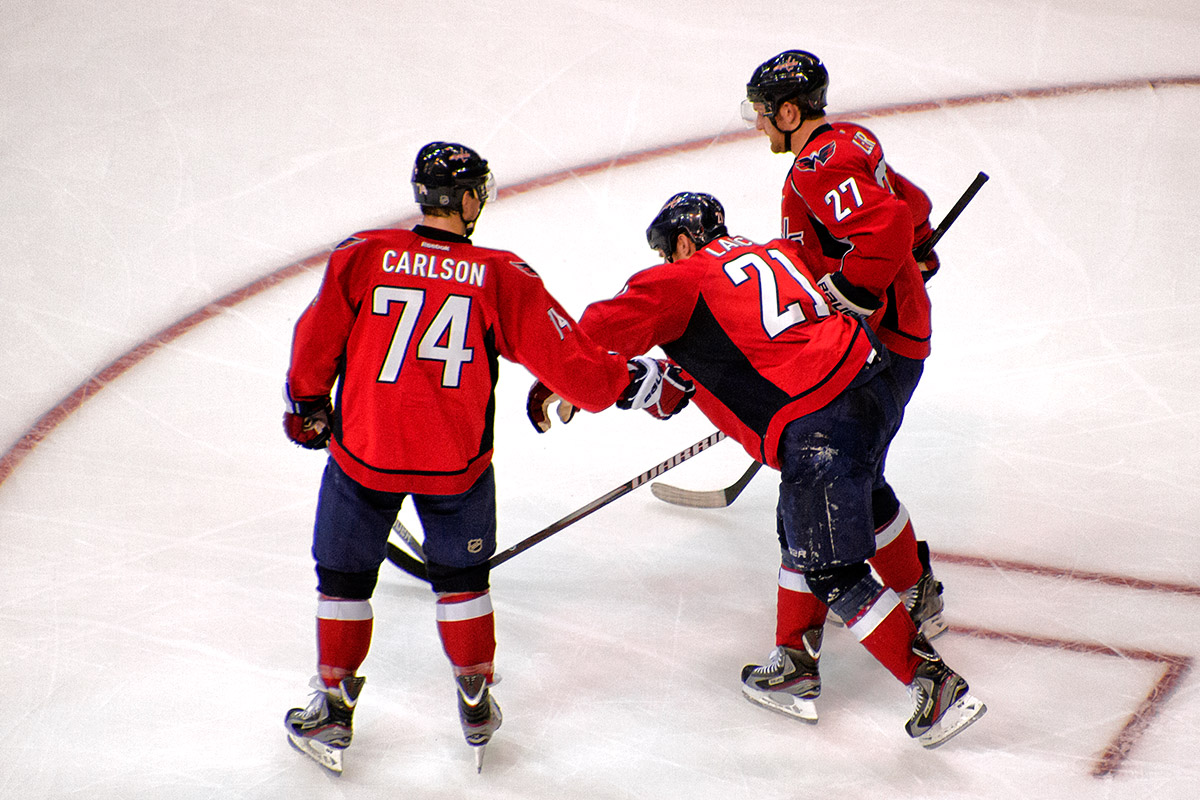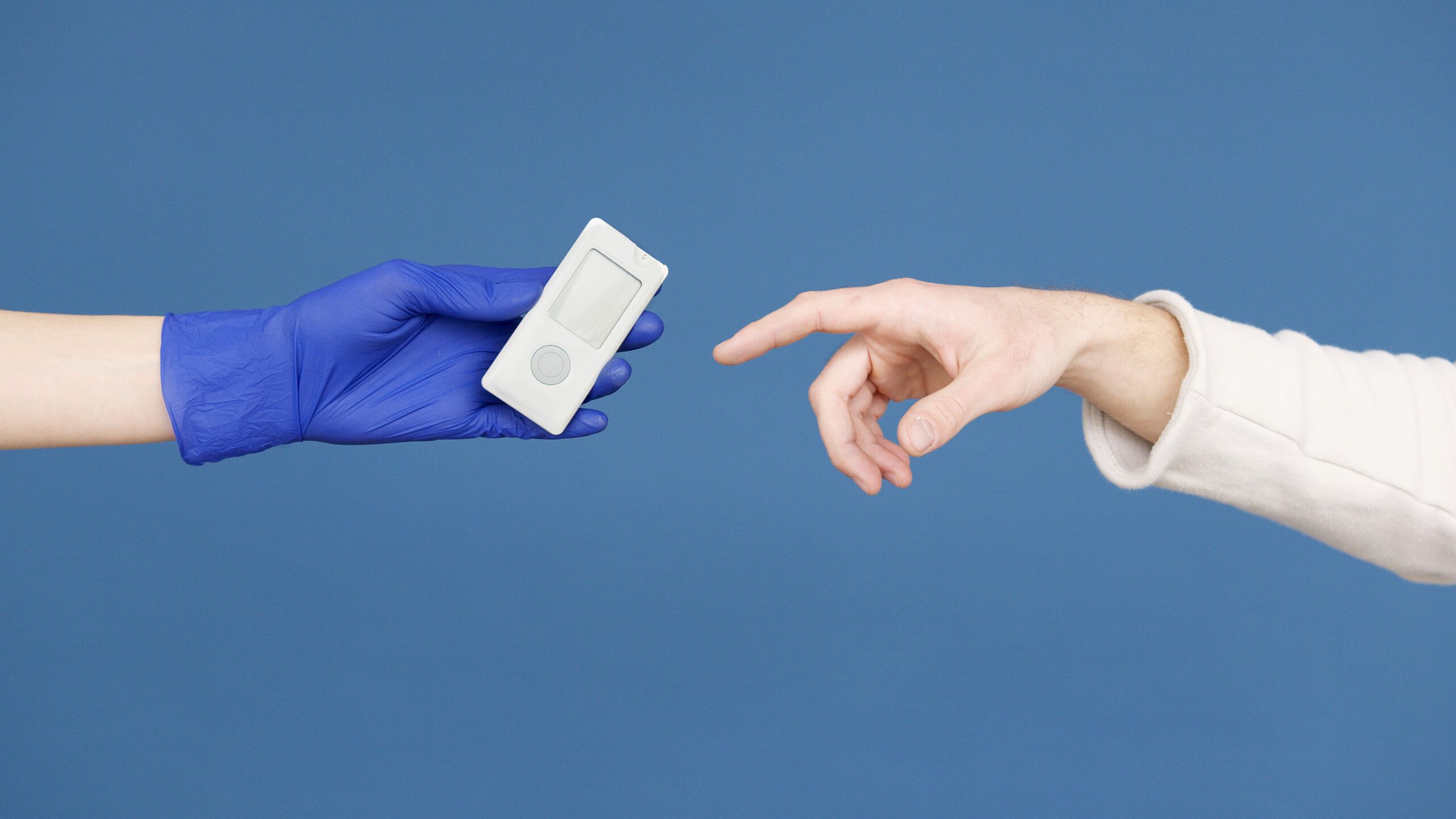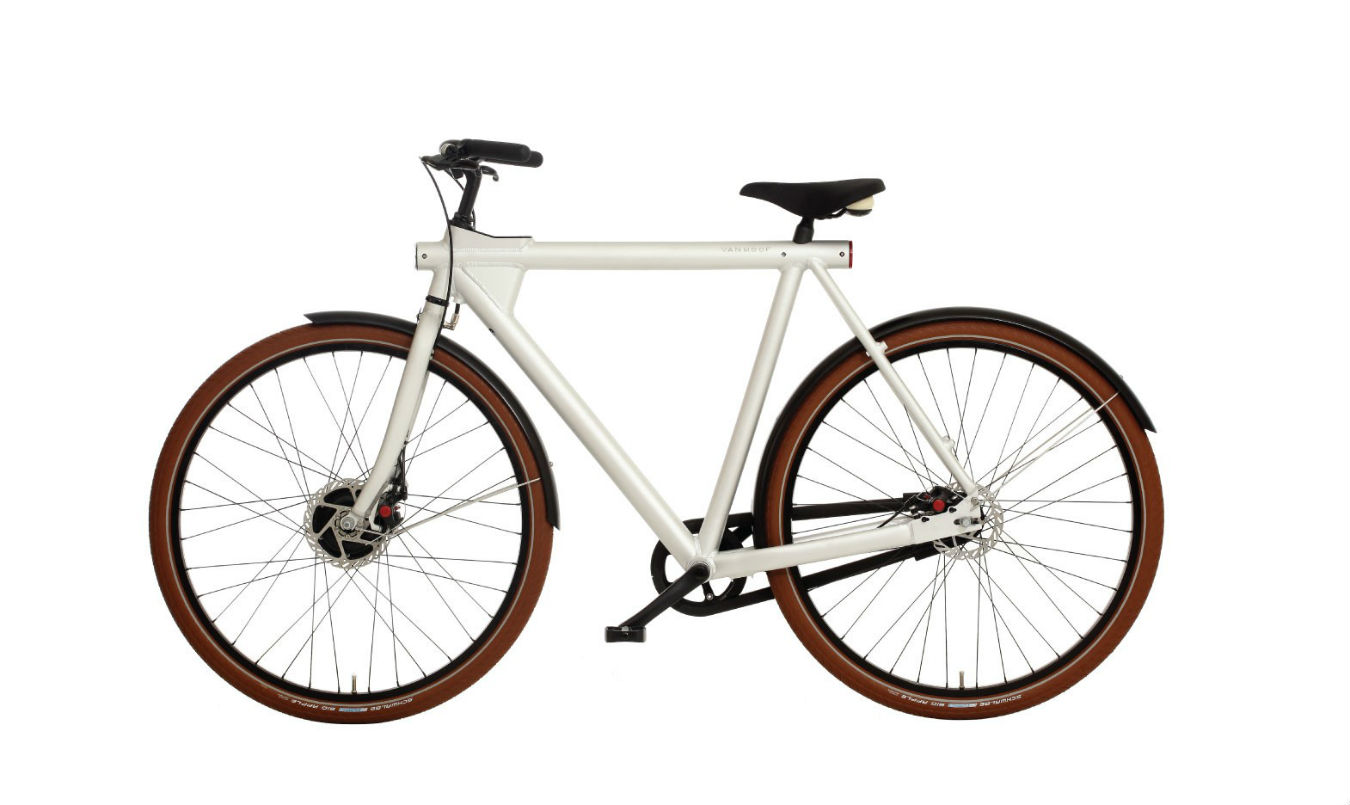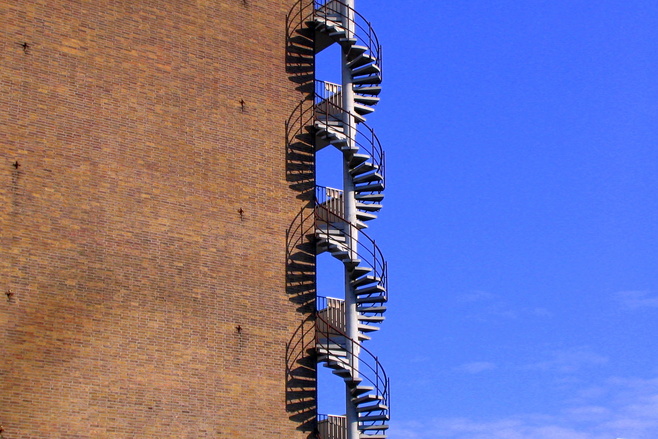Concussion Diagnosis
The Headcheck Health app.

WASHINGTON, DC - February 5, 2012: Washington Capitals forward Brooks Laich (#21) is helped off the ice by defensemen John Carlson (#74) and Karl Alzner (#27) after apparently injuring his left leg during their NHL ice hockey game at Verizon Center.
When you see it on TV, you feel it—not in your head, but somewhere in your gut. The hard check that sends the hockey player face-first into the boards; the fist to the jaw that knocks him unconscious before he even gets a chance to crumple to the ice. You cringe and shake your head; you don’t need a medical degree to know what damage has been done.
To some hockey fans, concussions are “part of the game”—one of the many risks a person accepts whenever he laces up his skates. But with researchers beginning to connect the dots between even minor head injuries and serious disorders such as depression, dementia, and even suicide, the threat of concussion is like a spectre hanging over the rink.
It’s not just a problem for professional players. Anyone who’s watched their son or daughter step onto the ice has wondered whether this will be the game in which something dreadful happens. While most Canadian kids are sheltered from checking until age 14, after that, playing the body is a legitimate strategy. The cumulative effect of all those bumps—who knows?
Enter HeadCheck Health. Founded by University of British Columbia researchers and backed by a coterie of former NHL players, the company has created an app that puts professional-level concussion diagnosis in the hands of amateur coaches and officials, parents, or anyone with a smartphone.
Concussion diagnosis is notoriously subjective—there’s no foolproof test or scan that can tell you whether that bump on the head will lead to a devastating brain injury. To get around this problem, the app prompts users to rate the severity of a series of known concussion symptoms on a numeric scale. The app then uses a proprietary algorithm to analyze the input and provide a rough overview of what’s going on. No, it’s not a replacement for a doctor, but it provides amateurs with an easy-to-use test that gives guidance on whether a player should get back in the game or sit this one out.
Of course, now that we’re getting better at dealing with concussions, we can turn our attention to the ethics of concussion-heavy entertainment. We Canadians love our hockey, and we compensate our gladiators far better than the Romans did theirs. But we know where this road leads. Stompin’ Tom Connors sang, “The goalie jumps and the players bump and the fans all go insane,” but it may well be the players who end up losing their minds.
Photo via Flickr, Clydeorama.
_________
Never miss a story. Sign up for NUVO’s weekly newsletter.








